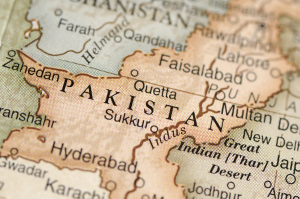Bringing Good Out of Evil
Economic Justice in Myanmar
In recent weeks, the world has been witness to two massive natural disasters: the cyclone that hit the nation of Myanmar on May 2 and the earthquake 10 days later in southwestern China. The Myanmar government put the official toll of dead or missing from Cyclone Nargis at 134,000 people, while Chinese authorities say some 70,000 are dead or missing after the quake. In addition, millions of people have been displaced and are in desperate need of food, shelter, and water.
Disasters of this kind provide opportunities to forge and reinforce a sense of international solidarity. To its credit, the international community, including governments, non-governmental organizations, relief agencies, and volunteer groups have responded admirably to both of these challenging events.
Because of its connection with a local independent chapter in Myanmar, for instance, the International Red Cross was able to get relief supplies into the country early on without much in the way of bureaucratic opposition. But other aid agencies are facing rather stiff opposition from the current junta, part of a military rule that has governed Myanmar since 1962.
Now, three weeks after the cyclone hit Myanmar, hundreds of thousands of people are still without food relief because of delays by the government in granting visas to aid workers. The United Nations says that there is a functioning relief program in place but so far it has only been able to reach 25 percent of the people in need.
There are at least two basic things that we can learn from these disasters and the responses from both the affected governments and the broader international community. The first is a short-term lesson about emergency relief aid: In the wake of tragedies like this, the generosity of the global community is significant.
Supplies worth millions of dollars are readily available for relief efforts from a variety of governmental and non-governmental sources. Indeed, the newly released 2008 Index of Global Philanthropy reports that "private giving and investment from all donors to developing countries now account for over 75 percent of developed countries' entire economic dealings with the developing world."
The slowness of Myanmar's ruling regime to open itself up to international aid is indicative of the second and longer-term issue raised by these disasters. The citizens of nations like Myanmar are especially vulnerable to natural disasters because they are so economically and socially insulated from the rest of the world. Myanmar possesses a wealth of natural resources, but the intransigence and insularity of the ruling junta have prevented stable and permanent international trade relations from being realized.
Trade and commerce build trust across national borders, as is evidenced by the fact that Myanmar's main neighbors and trading partners, Bangladesh, China, India and Thailand, are the only nations so far that have been openly invited to participate in aid and reconstruction efforts. In the short term, Myanmar's government ought to more actively welcome and accommodate the generous aid offers from the broader global community.
These acts of charity can be an opportunity for building relationships of trust and mutual respect that are necessary for more lasting economic development. Cyclone Nargis represents a test and an opportunity for Myanmar's government. While the regime has previously oppressed economic liberty in pursuit of its own political gain, there is a chance that the care shown in this time of tragedy can become a foundation for more long-term economic justice and prosperity for the people of Myanmar.
As the theologian Augustine once observed, "Justice being taken away, then, what are kingdoms but great robberies?" No nation is an island unto itself, and isolationist regimes that pretend the opposite do grave injustice to their people, with life and death consequences. If justice for the Burmese people is to be pursued and good is to come out of the evil of such disasters, then Myanmar's government must show itself to be legitimate not only by temporarily welcoming aid workers but also by permanently opening up its borders to trade and joining the international community.
_______________________________________________
Jordan J. Ballor is associate editor of the Journal of Markets & Morality.



























